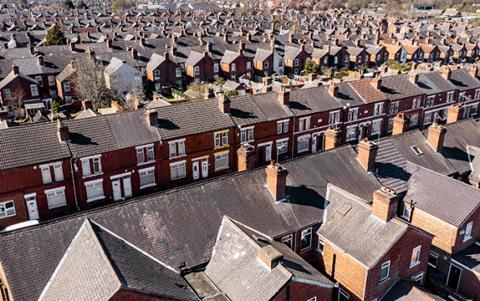Sector bodies, including CIH and NHF, raise concerns about cost of proposed requirements as consultation closes
The G15 has raised concern about the government’s proposals to bring public realm components, internal communual areas and shared outdoor spaces within the revamped Decent Homes Standard.

The group, which consist of the largest housing associations in London, said the original DHS was established as a “catch-all standard for conditions inside the home”, while external areas are already addressed through other regulatory frameworks such as the Housing Health and Safety Rating System (HHSRS).
In its submission to the consultation, it said expanding the scope as proposed by government would “duplicate existing duties without improving outcomes for residents.”.
It said: “Many of the proposed components, such as external lighting, boundary walls and communal pathways, are routinely monitored and repaired through estate inspections and day-to-day housing management. For example, if a tripping hazard exists in a shared bike shed, it is unclear how compliance would be reported for each flat, creating practical monitoring challenges.”
The group said it was particularly concerned about the inclusion of lifts as a “key” component that could cause a property to fail the standard.
It said: “Lifts operate differently to other housing components; they require specialist maintenance, can go in and out of service quickly, and are already comprehensively covered by safety regulations. Furthermore, including lifts in the DHS risks unnecessary duplication of regulatory requirements, adding administrative and compliance burdens without improving resident outcomes. Their inclusion in DHS compliance would create volatility, with homes moving in and out of decency for reasons beyond landlords’ control.” G15 said a more proportionate approach would be to focus only on instances where lift failures have a clear, practical impact on residents’ ability to access and use their homes.
G15 also said it does not believe door entry systems should be included as a core building component. “Expecting standard surveyors to assess these systems in detail risks inaccurate reporting and unnecessary duplication”, it said.
It said: “While we acknowledge that a home extends beyond the front door, we do not agree with the proposed extension to internal communal areas and shared outdoor spaces. The new standards should remain focused on conditions within the home.
G15 said the standard’s compliance targets should be aligned with regulations on Minimum Energy Efficiency Standards (MEES) and be implemented in 2037.
The group also echoed concerns from others about the cost of the proposed requirement to mandate floor coverings in all social housing properties. It said: “Flooring alone could cost upwards of £2,000 per property, considerably more than the government’s assumption of £1,032 per home.”
The National Housing Federation earlier this week said it cannot support the floor coverings proposal unless extra funding is made available and it has suggested a pilot programme to test the idea.
In its response the Chartered Institute of Housing (CIH) also raised concerns about the cost of the requirements and said its engagement with members suggests the government’s cost estimates are “unrealistic.”
It said: “We call on the government to provide long-term funding programmes and support, underpinned by social rent convergence at an appropriate level and an expanded Warm Homes: Social Housing Fund, so that landlords can deliver improvements without undermining investment in new homes.”
CIH said it “supports removing age as a measure of disrepair, adopting more descriptive thresholds, recognising kitchens and bathrooms as key components, and treating ventilation, lifts and communal areas as essential to safety and wellbeing.” It warned that the standard must sit alongside existing regulations such as those around building safety, fire safety, MEE and Awaab’s Law, with “clear, consistent guidance to avoid duplication or confusion.”
In its submission, the Northern Housing Consortium (NHC) said it is “critical that costs are fully understood”. “The final assessment of costs must include detailed modelling which can be gained by working with individual social landlords, to understand the reality in practice and any risk of trade-offs with supply”, it said.
NHC said also said some definitions of disrepair outlined in the government’s consultation paper appear “overly prescriptive.”
“Registered providers have said that while they are committed to proactively maintaining decency, a rigid list of components - some beyond their direct control - could lead to properties falling in and out of decency with regularity.
“The Decent Homes Standard is intended to serve as a continuous record of housing quality. We are concerned that the level of prescriptive detail risks distorting the concept of decency and may affect how compliance data is reported and interpreted by the regulator”











1 Readers' comment